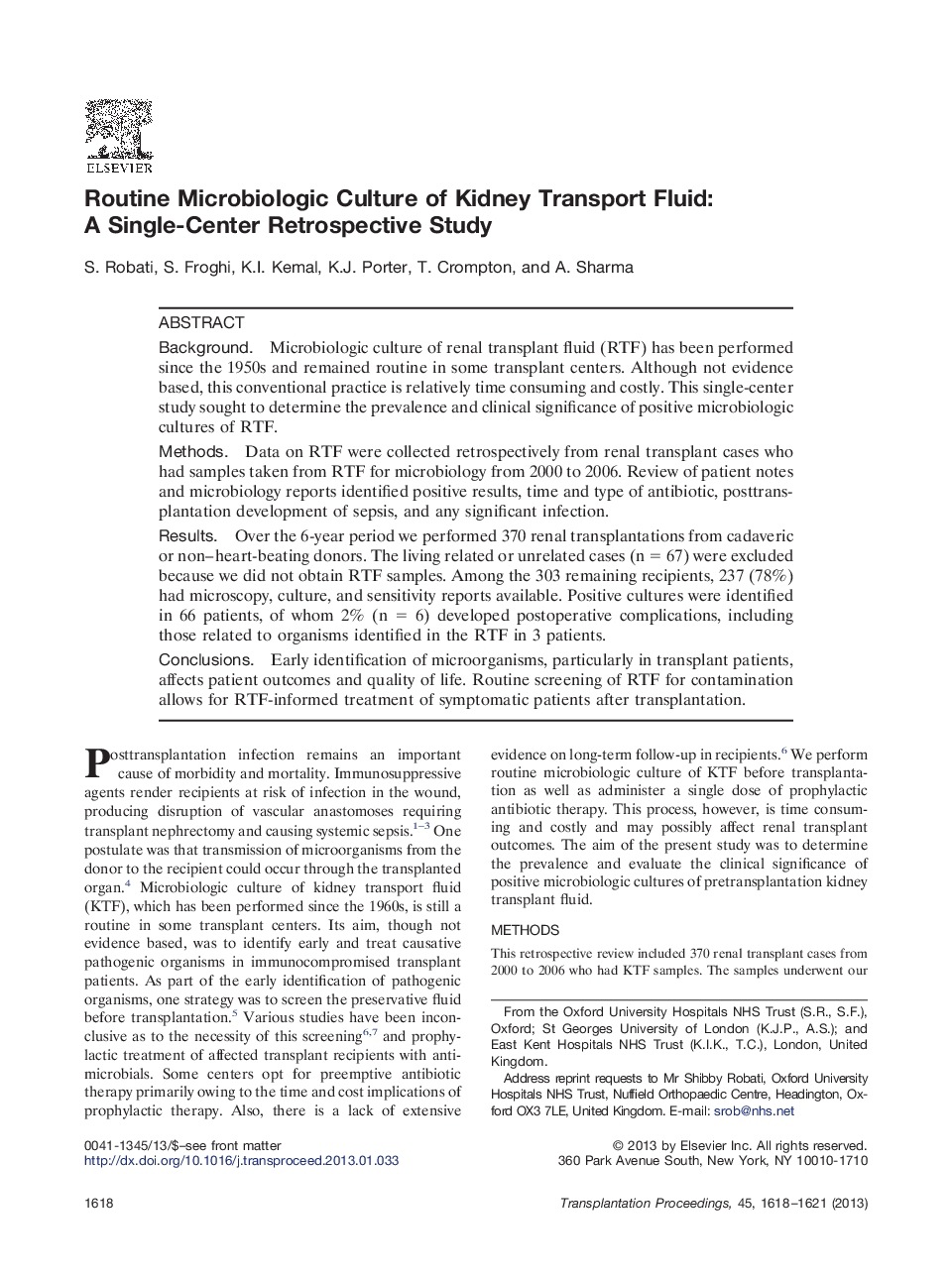| Article ID | Journal | Published Year | Pages | File Type |
|---|---|---|---|---|
| 4257333 | Transplantation Proceedings | 2013 | 4 Pages |
BackgroundMicrobiologic culture of renal transplant fluid (RTF) has been performed since the 1950s and remained routine in some transplant centers. Although not evidence based, this conventional practice is relatively time consuming and costly. This single-center study sought to determine the prevalence and clinical significance of positive microbiologic cultures of RTF.MethodsData on RTF were collected retrospectively from renal transplant cases who had samples taken from RTF for microbiology from 2000 to 2006. Review of patient notes and microbiology reports identified positive results, time and type of antibiotic, posttransplantation development of sepsis, and any significant infection.ResultsOver the 6-year period we performed 370 renal transplantations from cadaveric or non–heart-beating donors. The living related or unrelated cases (n = 67) were excluded because we did not obtain RTF samples. Among the 303 remaining recipients, 237 (78%) had microscopy, culture, and sensitivity reports available. Positive cultures were identified in 66 patients, of whom 2% (n = 6) developed postoperative complications, including those related to organisms identified in the RTF in 3 patients.ConclusionsEarly identification of microorganisms, particularly in transplant patients, affects patient outcomes and quality of life. Routine screening of RTF for contamination allows for RTF-informed treatment of symptomatic patients after transplantation.
